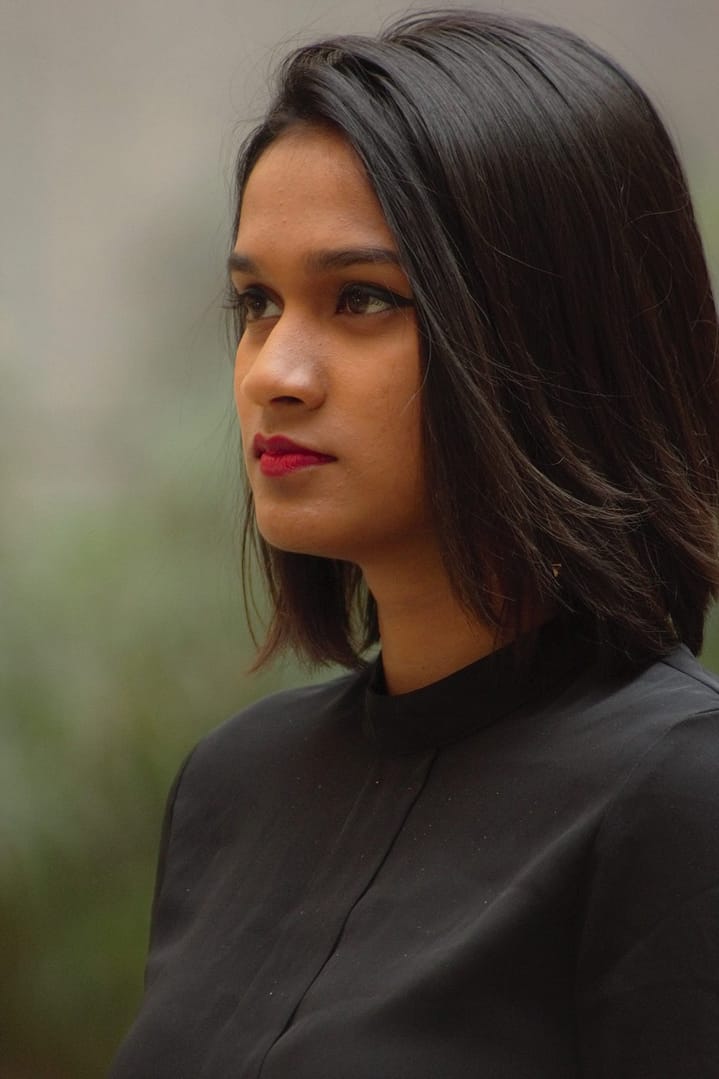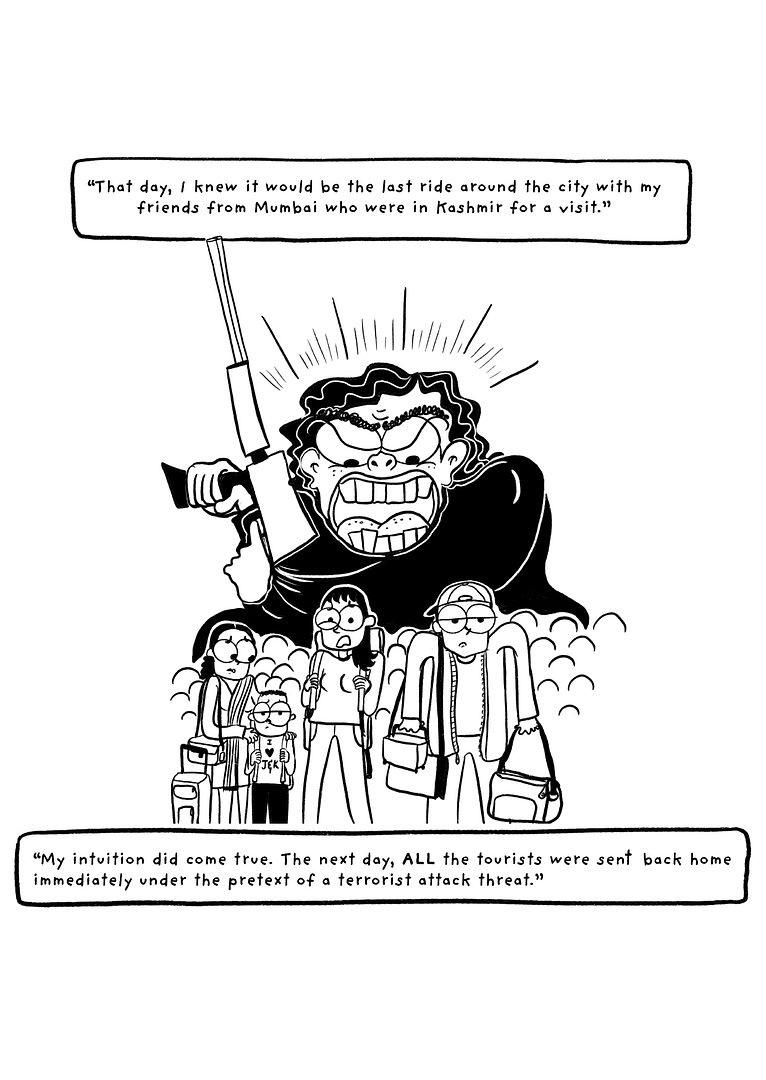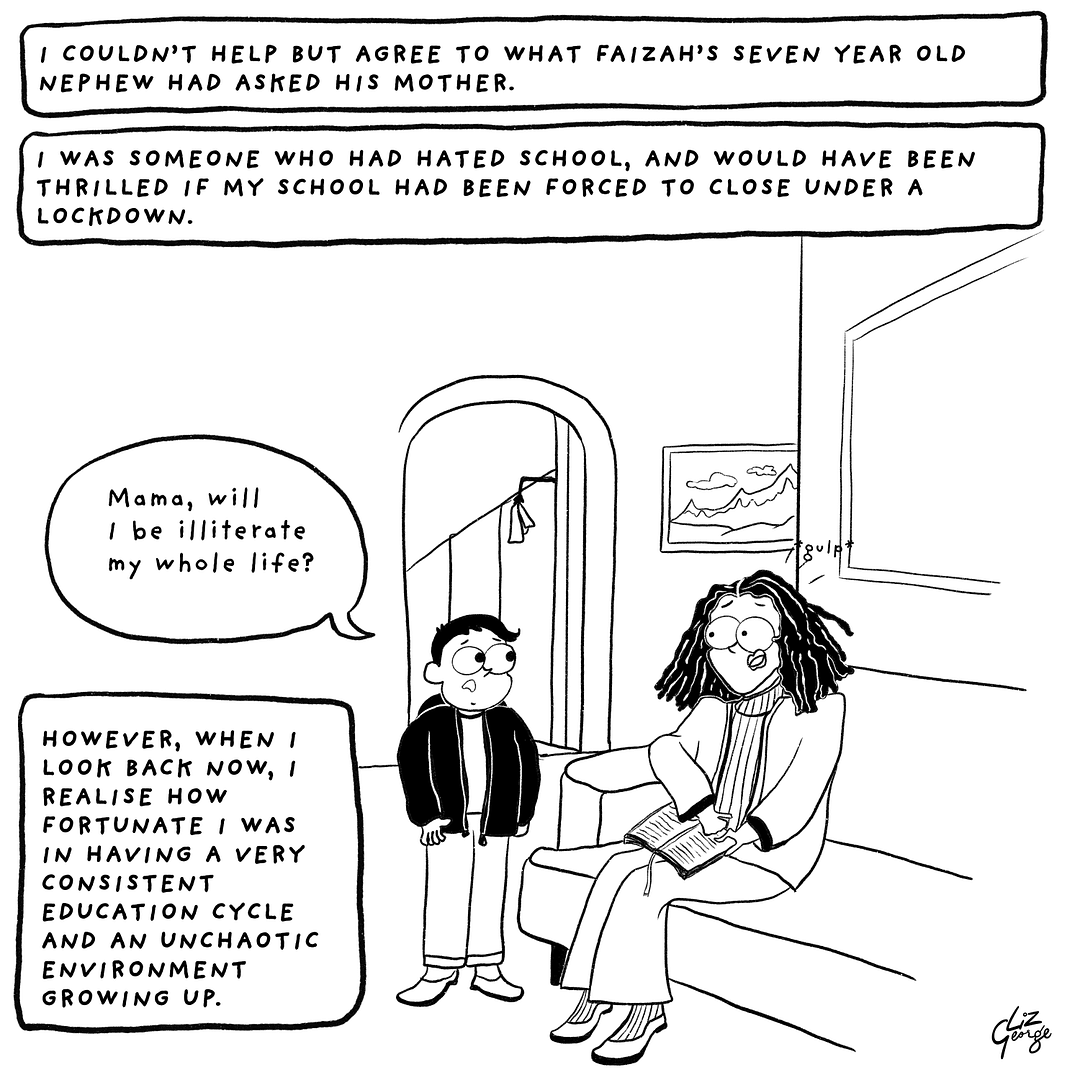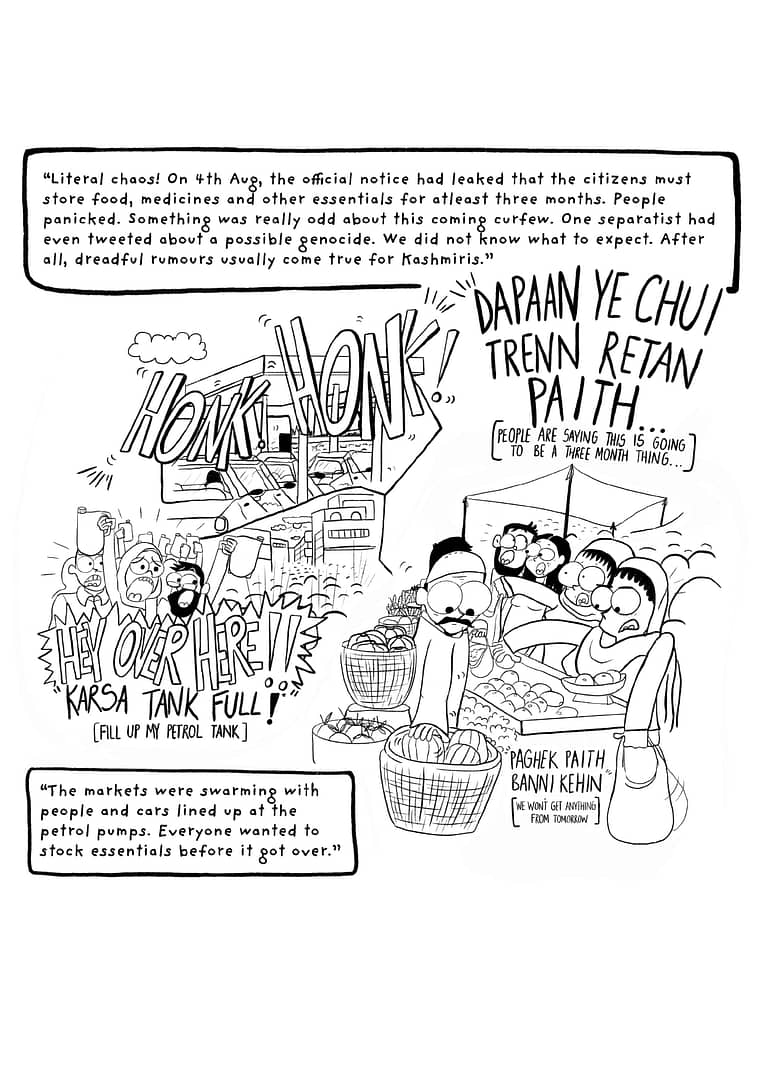by Sherif Awad
I’m from Kochi, a city in the southern state Kerala in India. Growing up, arts and the other related activities were deemed as extra curricular in schools. And as someone who was only interested in these, there was nothing more I disliked than academics. So in short, I learned to draw, because I wanted to get away from studying! Back home, I used to spend all the time watching cartoons on different channels like Cartoon, Nickelodeon and Animax and getting inspired to draw from them.
As an introverted kid, I found cartooning the perfect way to express myself. When I was 11, I won the district and the state level cartoon drawing competition in my first attempt. This propelled me to draw more. After school, I tried my hands on design. I went on to pursue fashion design from the National Institute of Fashion Technology, Hyderabad, and worked as a graphic designer in Mumbai for a year. I wasn’t a big fan of the work culture, both, in fashion and design. So I went on a short sabbatical to finesse my drawings, and ended up teaching myself creative marketing. Ofcourse, cartoons did remind a part of me throughout these years. Two years since then, I self-published my first graphic book- Ask a Kashmiri, based on the 2019 Kashmir lockdown and am currently leading the Marketing team at Azooka, a biotech startup that recently won “The Best Women-Led enterprise” at the StartUp India Awards 2020.
My family is polar opposite to me, but (thankfully) they let me be me. All of them excelled in academics. My father is a Civil Engineer and an aspiring writer, my mom is an ENT Surgeon and my elder brother is pursuing his Ph.D in Ocean Engineering from the Indian Institute of Technology- Chennai.
Coming-of-age, the only celebrity I had heels-over-heels admiration for, was Rihanna. I was awestruck by her confidence.
My favourite artists are Marjane Satrapi, the creator of “Persepolis” and Joe Sacco, the creator of “Palestine”. I love how the themes they work with, and I’m truly inspired by their works. It was after reading these books that I started to express myself through sociopolitical cartoons.
My favourite comic book character is Betty Cooper from the Archie Universe. As a kid, I took a fancy towards her because her character was someone I was not, but I really aspired to be. (Haha!)
The uniqueness of cartooning is that you necessarily don’t have to be a skilled artist in a conventional way. Your idea is the hero, and the style of drawing complements it. And I feel the best way to become a cartoonist is to teach yourself. There is something special when you learn an art form by yourself. It represents ‘you’ on paper. This of course, takes hours of dedicated time and immense perseverance. Sometimes your ideas click, sometimes, it doesn't. Sometimes you need to let your ideas and your drawing mature with time. I say, learn the basics from good books or articles online, and evolve by practicing and asking yourself what you want to convey.
India did have a golden age for cartoons until about a decade back. There are cartoons from India like the syndicated series ‘The Common Man’ by the Late Legendary cartoonist RK Laxman, that was a household name till his passing. However, the popularity of cartoons have now declined. India has a diverse and quite intolerant crowd, which makes it difficult to cater to everyone’s preference. So, cartoons that used to be quite political back in the day, but now have transcended into more light-hearted themes to reach more audience.
There are many imported cartoons that made it big in India. In fact, it's reading all of them that helped me understand the international audience for cartoons. A few of these are Garfield, Peanuts, Dilbert, Calvin and Hobbes that used to be a regular in the newspapers here. Comic books that saw huge success here were Tintin, Asterix and The Archie Comics. The Archie Comics was perhaps the biggest hit among the rest. Ask anyone who was a kid in the 90’s and early 00’s, and they would have all read the series.
I think it’s the socio-political realities of societies that affect comic books. There are classics that are a social commentary of events in history, like the Putlizer winner “Maus”by Art Speilgeman. The book illustrates his father’s experience in the Holocaust. Frankly speaking, I don’t think any form of media really affects socio-political realities nowadays. Even if it does, it's short-lived. As pessimistic as it may sound, the world is too fast that nothing really lingers.
Yes, Cartoons do affect the sociopolitical surroundings to a certain degree in India. However, I feel cartoons in India have lost their charm. Cartoons should be about questioning decisions .In a country that is diverse yet rather tetchy towards criticism, publications nowadays tend to bend towards work that is politically right.
One such series in India is the “The Amul Butter Girl” cartoons that first debuted back in the 60’s. The series is by the Indian Milk Cooperative, Amul, with their brand mascot as the central character and witty one-liners.
During a comic collective last year, I was giving away my visiting cards, which looked like palm-sized cartoon posters, to all the visitors at my stall. By the end of the day, I had several people coming in, asking where they could “buy” those posters. It felt satisfying to me as a creator, because I saw how excited my audience was in getting my work. My visiting cards also received special mention from my online customers who said that was the best part of my package! I consider this reaction from my audience as my greatest achievement so far.
I’m currently working on a web cartoon series on my website www.lizgeorge.in. I’m also planning on a full-fledged graphic novel on the side. It’s slightly early to comment on the details. But I’m hoping to have the initial work up by the first half of 2021.
The best advice I can give to budding artists would be to take breaks. I notice among newcomers and even my peers, of how they are afraid to go on a sabbatical. I think the fear arises mostly from the fact that everyone is swayed by the concept of “overnight success”, and rush things without enjoying the process. I feel it's important to take a step back, and introspect your thoughts and your ideas for a good output. Of course, have the mindset of improving yourself each day. But do enjoy the breaks too.
The Creative head of the series, Rahul da Cunha has mentioned in interviews how the brand tends to not question sensitive topics like religion or political parties like how they used to back in the earlier days, because of the present political environment here.





